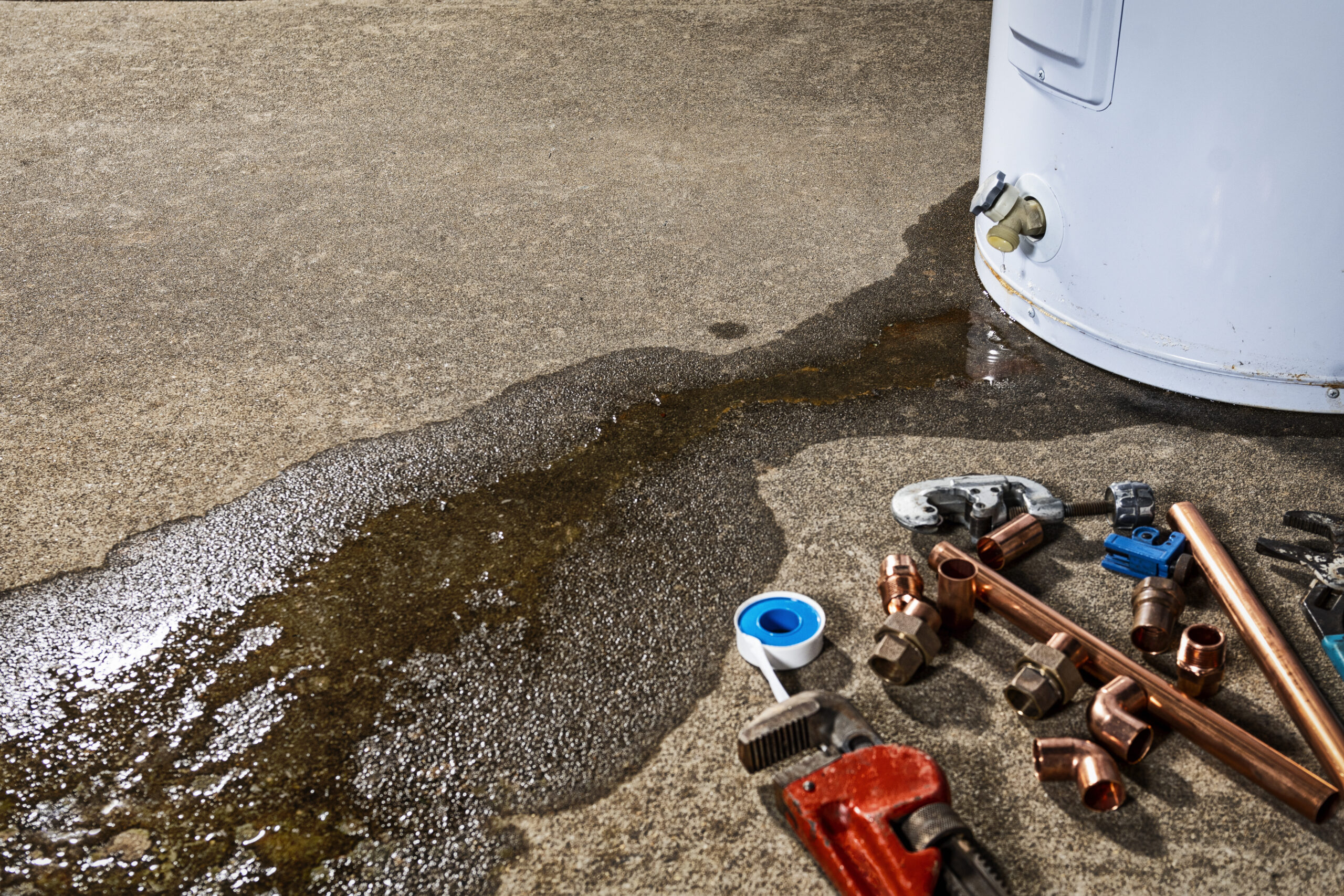You should replace your water heater before it fails to prevent flooding from a leak bursting and a lack of hot water. Although it can fail at any time, there are distinct warning signs that your water heater is going out.
How Long Do Water Heaters Last?
A storage tank water heater lasts 10-12 years although this can vary greatly depending on the water quality where you live and how well it has been maintained. Your water heater’s age is a great place to start when deciding whether it needs to be replaced. If your water heater is more than ten years old, you should take a closer look for signs of trouble.
Signs You Need a New Water Heater
The following symptoms can help you decide when to replace a water heater.
The Temperature is Inconsistent
Most water tanks aim to keep internal temperatures between 110°F and 120°F. If your water heater is unable to maintain this water temperature consistently, check your thermostat setting on the tank. If it is set correctly within the optimal temperature range and still generates an inconsistent temperature, it could be a sign of a worn or broken heating element. Alternatively, if your water temperature is consistently too high, that can also be an indication of a heating element failure.
Abnormal Noises
If an aging water heater is producing loud creaking or knocking sounds, it can be a sign of internal corrosion. When mineral deposits encounter the water heater’s heating element, they burn away which creates sound. If you hear noises, hire our plumbing experts to flush the tank for you. We will also check your internal tank lining for damage. If it is damaged, then it may be time to replace your water heater.
Rust in Water
If your hot water is brown, there could be various causes like a corroded pipe; however, rusty water could be an indication that your water heater is not performing at peak capacity. Over time, mineral deposits and rust collect in your hot water tank. These deposits come from the water, which is why areas that have water with more minerals — harder water — are more likely to take a toll on your water heater and eventually contaminate your water. It can also block the pressure relief valve and eventually eat through the tank and form rust on the outside. If you see rust anywhere on your tank, a leak is likely imminent.
Leaks
Leaks are the most obvious warning sign that your water heater is not working properly. If there is a puddle forming around your water heater due to a leak, replace it immediately — DO NOT wait for the trickle to become a deluge. Keep in mind that the leak can be very small at first, but it will not stay that way long. One trick to detect a future leak is to feel the tank with your palm for any bulging. Bulging can be a sign that rust is starting to eat through the tank.
How to Avoid These Problems
Properly maintaining your water heater by performing annual preventive maintenance that includes a water heater flush can go a long way to preventing premature failure. Since mineral deposits are the primary cause of water heater failures, reducing them can add years of life back to your unit. Overall, scheduling annual preventive maintenance will help you avoid a nightmare scenario because you will know if problems exist and can fix them before it gets out of hand.


